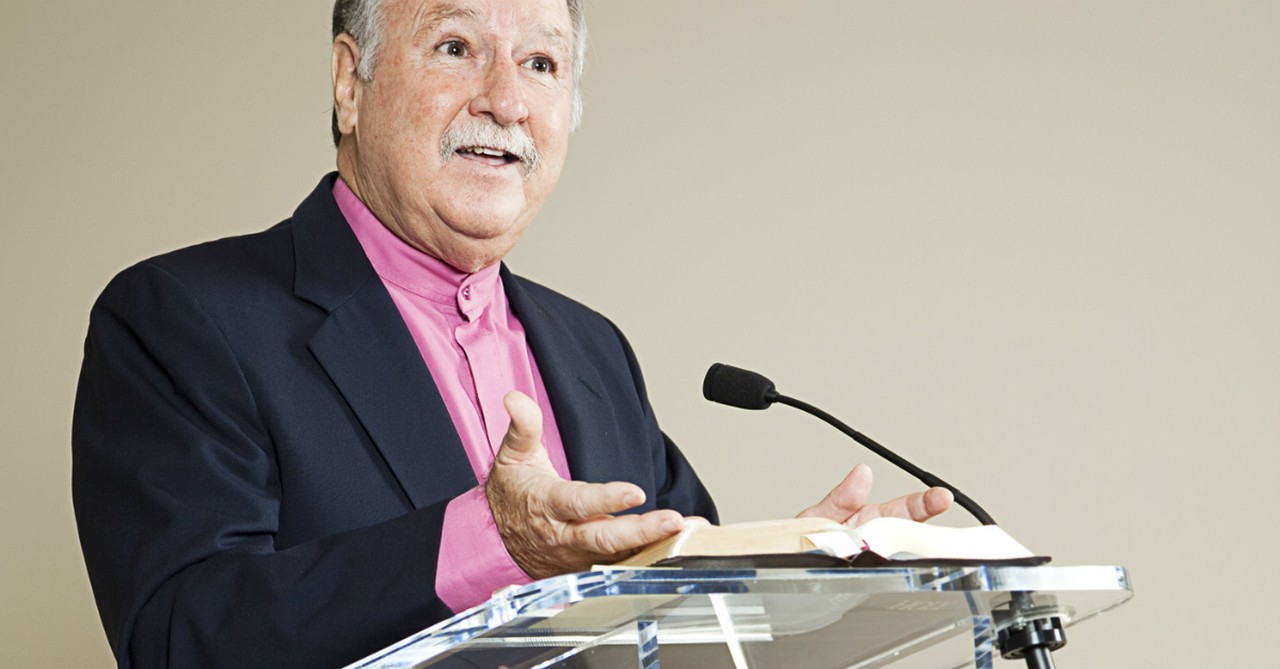7 Ways the Church Can Welcome People with Anxiety

Recently, l was made to feel unwelcome at a Women’s church event because my anxiety sometimes requires my husband to accompany me. My husband offered to come with me to this event because l have agoraphobia: a fear of being in open areas and public places, as well as being in crowds.
Even though men were present at the event, as waiters, ushers, and security personnel, we were given strict instructions to stay at the back of the hall and wait until everyone had sat down before finding a seat.
I couldn’t believe what was happening. I had just as much a right as any other woman present to sit where l wanted, and to participate in the evening’s program. And yet, l was being quarantined by the church, because my anxiety made me dependent on my husband’s support.
According to statistics, anxiety affects 7.3% of people globally. That means every 13th person sitting in a church pew has an anxiety disorder. And yet, many are feeling pushed away from churches, whose services and support are designed to meet the needs of a mainstream congregant demographic.
When we consider the rising percentages of mental illness sufferers and the increasing rate of suicides in church communities around the world, it is painfully apparent that the church simply cannot offer a “one experience for all” approach any longer.
Therefore, the following are 7 ways the church can stop quarantining people with anxiety:
Photo Credit: ©GettyImages/Tero Vesalainen
1. Get Educated on Anxiety

1. Get Educated on Anxiety
SLIDE 1 OF 7
Be sure you know the condition of your flocks, give careful attention to your herds. – Proverbs 27:23
To provide a safe place for people with anxiety, pastors and church leaders need to have a solid understanding of the wide spectrum of anxiety disorders and how they affect sufferers and their worship experience.
There are many mental health websites such as Anxiety Network or Anxiety.org that can provide useful information about anxiety, including types of disorders, symptoms, and treatment. Churches can also acquire advice from local mental health experts.
Additionally, there is a wide selection of literature available on anxiety disorders and the church, such as Anxious Church, Anxious People by Jack Shitama, or Mental Health and the Church by Stephen Grcevich.
TED talks, such as “How l live with high-functioning anxiety” by Jordan Raskopoulos, also lend first-hand insight on coping with anxiety.
Photo Credit: ©GettyImages/tadamichi
2. Increase Awareness about Anxiety

2. Increase Awareness about Anxiety
SLIDE 2 OF 7
Teach me knowledge and good judgment, for I trust your commands. – Psalm 119:66
Enduring ignorance from the church can lead to stigmatization and shame for those afflicted by anxiety. Assumptions that anxiety is caused by sin, demonic influences, or weak faith can result in those affected by an anxiety disorder to feel judged and scrutinized. Consequently, they infrequently come to church or stay away altogether.
By addressing anxiety openly from the pulpit, the church can end the shame and stigma. Guest speakers can also increase congregant’s awareness of anxiety.
Additionally, if pastors have personal experience with anxiety, sharing their struggles can help normalize what is still considered a taboo topic.
Related Resource: Listen to our FREE podcast, Faith Over Fear! You can find all of our episodes on LifeAudio.com. Listen below to our latest episode on anxiety:
Photo Credit: ©GettyImages/lisafx
3. Provide Church Staff with Mental Health Training

3. Provide Church Staff with Mental Health Training
SLIDE 3 OF 7
For lack of guidance a nation falls, but victory is won through many advisers. – Proverbs 11:14
By providing their staff with mental health training, the church can help make worship experiences more comfortable for those with anxiety disorders.
Those trained with knowledge of anxiety can also keep an eye out for those in the congregation who may be showing signs of developing an anxiety disorder.
Training can take the form of workshops, visiting conferences, or having mental health professionals come in to share their expertise and advice.
Photo Credit: ©GettyImages/fizkes
4. Pray for Those Who Struggle with Anxiety

4. Pray for Those Who Struggle with Anxiety
SLIDE 4 OF 7
In the same way, prayer is essential in this ongoing warfare. Pray hard and long. Pray for your brothers and sisters. Keep your eyes open. Keep each other's spirits up so that no one falls behind or drops out. – Ephesians 6:18
Prayer is the most effective church corporate tool in the struggle against anxiety. Therefore, the church can best support those in their congregation who have anxiety disorders by praying for them and with them.
Corporate prayer can be led from the pulpit; additionally, prayer warriors in the church can pray over those who are afflicted.
Individuals can also pray for friends and loved ones they know who struggle with anxiety. This can be done in person, on the phone, or even during one’s quiet time with God.
Photo Credit: ©©GettyImages/monkeybusinessimages
5. Offer Support Groups and Resources for Those Struggling or Helping with Anxiety

5. Offer Support Groups and Resources for Those Struggling or Helping with Anxiety
SLIDE 5 OF 7
Do not withhold good from those to whom it is due, when it is in your power to act. – Proverbs 3:27
People with anxiety disorders who come to church are seeking support, both spiritually and emotionally.
Churches can offer support groups for those afflicted with anxiety, where they can experience mutual support and encouragement. Counseling can also be offered from mental health experts within the church community or they can be brought in.
Additionally, churches can contact mental health organizations in their local area and request literature that they can distribute before or after services to those who need it.
Photo Credit: ©GettyImages/fizkes
6. Provide a Safe Place for Children with Anxiety

6. Provide a Safe Place for Children with Anxiety
SLIDE 6 OF 7
Children are a heritage from the LORD, offspring a reward from him. – Psalm 127:3
According to statistics, anxiety disorders such as ADHD, anxiety, and depression affects 1 in 8 children. These numbers are on the rise.
Parents who have children with anxiety are less likely to come with their families to church, as they fear they might be criticized on their parenting. Additionally, they worry that their children’s needs will not be accommodated for.
Therefore, churches should provide a safe place for children with anxiety disorders by providing children’s ministry teams with mental health training and offering emotional and spiritual support to parents.
Photo Credit: ©GettyImages/Ridofranz
7. Reach Out to the Community to Offer Help for Anxiety

7. Reach Out to the Community to Offer Help for Anxiety
SLIDE 7 OF 7
All the believers were one in heart and mind. No one claimed that any of their possessions was their own, but they shared everything they had. – Acts 4:32
People with anxiety who don’t know God, have a right to know that spiritual succor and emotional support are available to them.
Therefore, churches can use their social media platforms, street ministries, and other outreach programs to raise awareness to people outside of the church who have anxiety disorders, that they can receive help and find comfort and revelation through a relationship with Jesus Christ.
Following our experience at the Women’s evening, my husband and l had a constructive conversation with the event’s organizers. It symbolized a movement towards making church a safe and welcoming place for people with anxiety. I’m glad that we took that step, the church and us together.
Related Resource: Listen to our FREE podcast, Faith Over Fear! You can find all of our episodes on LifeAudio.com. Listen below to our latest episode on anxiety:
Photo Credit: ©GettyImages SeventyFour

Madeline Kalu is an Australian Christian writer and the co-founder of Jacob’s Ladder Blog and The Proverbs 31 Home. She is also the co-author of the “My Year of Miracles 2024” journal, which encourages a daily reflection on the miracles that God performs in our lives throughout 2024. Madeline lives in Germany with her husband Solomon and the family’s two cats who were rescued from the Ukrainian war zone.
Originally published May 26, 2022.






